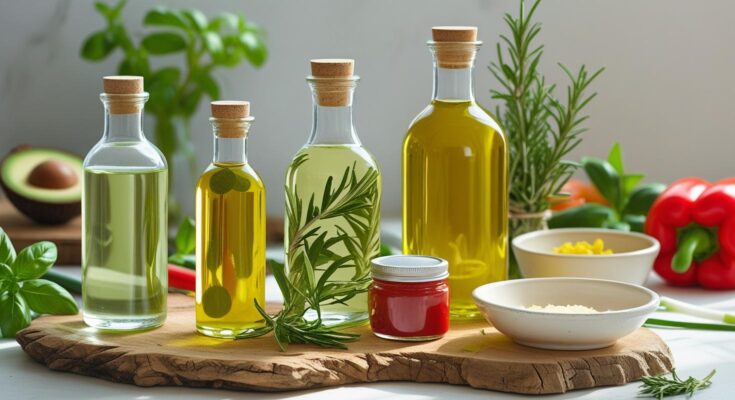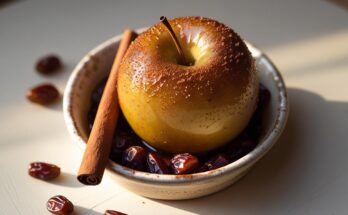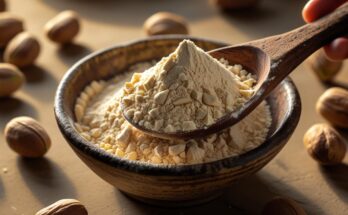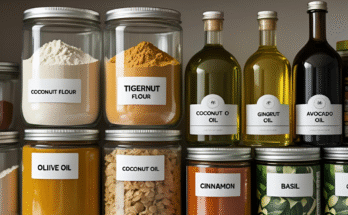Choosing the best AIP cooking oils is essential for anyone following the Autoimmune Protocol diet. The right fats not only enhance the flavor and texture of your meals but also play a vital role in reducing inflammation and supporting your body’s healing process. With so many cooking oils available, it can be confusing to know which ones are safe and beneficial on AIP and which should be avoided. This guide will walk you through the top AIP-approved cooking oils and fats, explain why they matter, and help you make smart choices for your autoimmune health.
Why Healthy Fats Matter on the AIP Diet
Fats are essential for overall health, but they’re especially critical when you’re following the Autoimmune Protocol (AIP). They help your body:
- Absorb fat-soluble vitamins (A, D, E, and K)
- Produce hormones and regulate inflammation
- Maintain brain and nerve function
- Support cell membrane health
- Stay satiated and energized
On the AIP diet, your body relies more on whole foods, and that includes getting fats from nutrient-dense, anti-inflammatory sources. The right fats can enhance your healing, while the wrong ones can disrupt gut function and increase systemic inflammation — the very issues AIP aims to address.
Best AIP Cooking Oils and Fats to Include in Your Diet
During the AIP elimination phase, focus on whole-food-based, unrefined fats that are minimally processed. Below is a list of compliant options with their benefits and best uses.
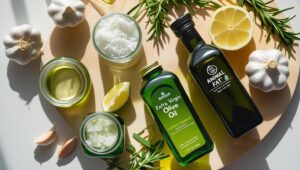
1. Coconut Oil
Why it’s AIP-approved:
Coconut oil is rich in lauric acid and MCTs, which are easy to digest and offer antimicrobial properties that support gut and immune health.
Best uses:
Great for sautéing, baking, roasting, and adding to smoothies or hot beverages.
Tip: Unrefined (virgin) coconut oil has a strong coconut flavor, while refined coconut oil is neutral.
Smoke point: ~350°F (unrefined) / ~400°F (refined)
2. Avocado Oil
Why it’s AIP-approved:
Loaded with monounsaturated fats and vitamin E, avocado oil is anti-inflammatory and heart-healthy. It’s also stable at high temperatures.
Best uses:
Ideal for grilling, stir-frying, roasting, and even making AIP-friendly mayonnaise.
Smoke point: ~480°F
3. Olive Oil (Extra Virgin)
Why it’s AIP-approved:
Extra virgin olive oil (EVOO) is rich in antioxidants and polyphenols, which have anti-inflammatory effects beneficial for autoimmune conditions.
Best uses:
Best used raw in salad dressings, drizzled on vegetables, or for light sautéing. Heating EVOO to high temperatures may degrade its nutrients.
Smoke point: ~375°F
4. Animal Fats (Tallow, Lard, Duck Fat)
Why they’re AIP-approved:
When rendered from healthy, pastured animals, animal fats are a traditional, nutrient-rich source of saturated and monounsaturated fats. They are also very stable for high-heat cooking.
Best uses:
Perfect for roasting, pan-frying, or browning meats and vegetables. They add rich flavor to AIP-friendly dishes.
Smoke point: ~375°F–400°F
Important: Always choose fats from grass-fed or pasture-raised animals for optimal nutrients and to avoid hormone or antibiotic residues.
5. Red Palm Oil
Why it’s AIP-approved:
This bright orange oil is rich in carotenoids (precursors to vitamin A) and vitamin E tocotrienols. It’s highly stable and nutrient-dense.
Best uses:
Soups, stews, and dishes where its earthy flavor complements the ingredients.
Smoke point: ~450°F
Caution: Only purchase sustainably sourced red palm oil to avoid contributing to deforestation and habitat loss.
6. MCT Oil (Coconut-Derived)
Why it’s AIP-approved:
Medium-chain triglyceride oil offers fast-burning fuel for your body and brain. It’s usually extracted from coconut oil.
Best uses:
Drizzle on salads or add to smoothies. Not suitable for cooking due to its low smoke point.
Smoke point: ~300°F
Fats and Oils to Avoid on AIP
During the AIP elimination phase, avoid inflammatory and heavily processed fats that can disrupt gut and immune function.
Industrial Seed and Vegetable Oils
- Examples: Canola, corn, soybean, sunflower, safflower, cottonseed, grapeseed, and rice bran oil.
- Why avoid: These oils are high in omega-6 fatty acids and are often extracted using heat and chemical solvents, making them pro-inflammatory and oxidative.
Peanut Oil
- Why avoid: Peanuts are legumes, which are excluded on AIP for their potential to increase gut permeability and immune reactivity.
Sesame, Flaxseed, and Other Seed Oils
- Why avoid: Although some seed oils contain beneficial nutrients, they are excluded during elimination due to their origin (seeds) and inflammatory potential. Reintroduce them cautiously later.
Margarine and Imitation Butters
- Why avoid: These are processed products often made with hydrogenated oils or trans fats, which have been linked to cardiovascular disease and systemic inflammation.
How to Cook with AIP Fats
Match Fat to Cooking Temperature
- High-heat cooking: Avocado oil, tallow, lard, duck fat
- Medium-heat cooking: Coconut oil, refined olive oil
- No-heat/cold use: Extra virgin olive oil, MCT oil
Don’t Be Afraid of Saturated Fats
Despite outdated dietary dogma, saturated fats from whole-food sources like coconut and animal fats can be beneficial, especially when part of a nutrient-dense, anti-inflammatory diet like AIP.
Proper Storage for Fats
- Store oils in dark glass bottles away from heat and light.
- Refrigerate animal fats and MCT oil after opening.
- Keep lids tightly sealed to prevent oxidation.
Rotate Your Oils
Each fat provides different nutrients. Rotating between various fats ensures a balance of omega-3s, omega-9s, and saturated fats without overloading on omega-6s.
Reintroduction Spotlight: Ghee
Ghee, a clarified butter with milk solids removed, is not allowed during the elimination phase but is often one of the first dairy-based foods reintroduced. It’s generally well tolerated by people with dairy sensitivities and is rich in butyrate, a short-chain fatty acid that supports colon health.
Pro tip: Choose grass-fed ghee for maximum benefits.
Interested in how to successfully reintroduce foods like ghee? Read our detailed AIP Reintroduction Phase Guide for tips and protocols.
Frequently Asked Questions (FAQs)
Can I use olive oil for frying on AIP?
Yes, but keep the heat low to medium. For high-heat methods like stir-frying or searing, opt for avocado oil or animal fats instead.
Is butter allowed on AIP?
No. Butter is a dairy product and is excluded during the elimination phase. You can consider reintroducing ghee later.
Are all coconut oils the same?
No. Virgin (unrefined) coconut oil retains more nutrients and a coconut flavor. Refined versions are more neutral and better for high-heat cooking.
How do I know if a fat is healthy on AIP?
Look for whole-food-based, minimally processed, non-seed-derived fats that are free from additives or chemicals. Organic, cold-pressed, and pasture-raised labels are good indicators.
Can I reintroduce seed oils later?
Yes, but one at a time. Try high-quality, cold-pressed oils like sesame or flaxseed only after your elimination phase is complete and symptoms are stable.
Final Thoughts
Fats are one of the most important building blocks of a nutrient-dense, anti-inflammatory diet like AIP. Choosing the right oils and fats can mean the difference between supporting your healing and unknowingly feeding inflammation.
Focus on:
- Whole-food fats like coconut oil, avocado oil, olive oil, and animal fats.
- Avoid industrial oils such as canola, soybean, and margarine.
- Cooking wisely, storing oils properly, and rotating for nutritional diversity.
With the right fats in your pantry and a little knowledge about how to use them, you’ll not only improve your meals, you’ll accelerate your healing journey.

